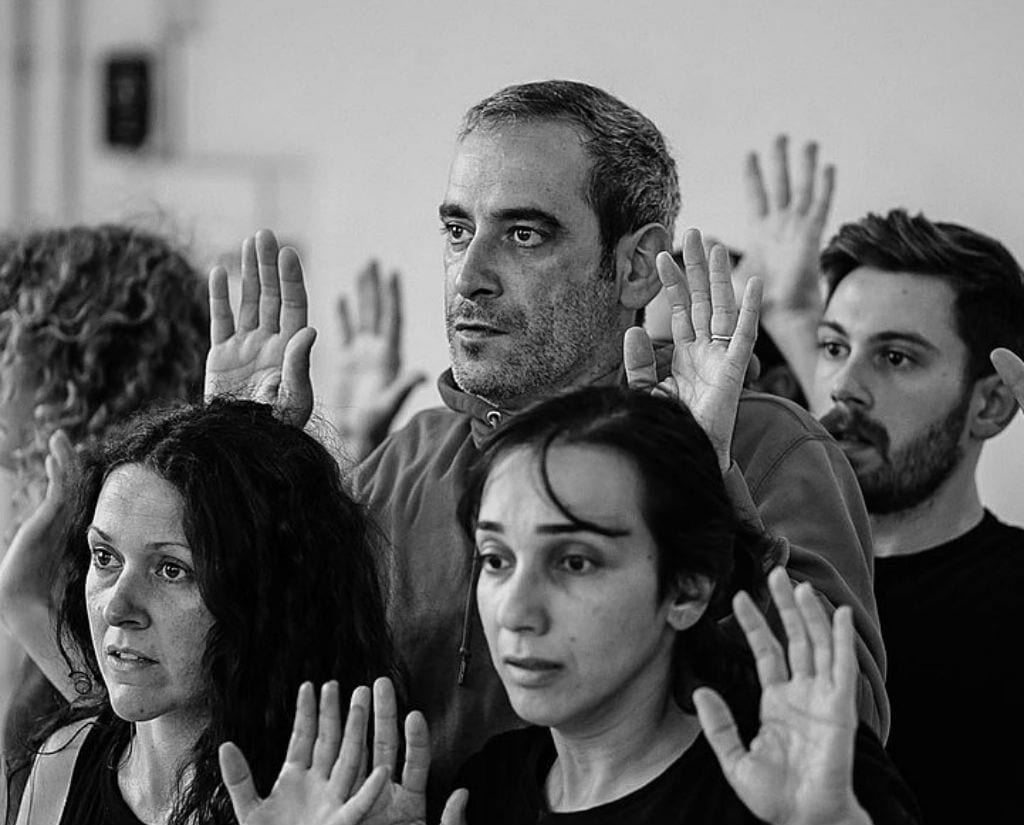Seemia Theatre’s new production, Evros, seeks to immerse the audience in the present refugee crisis: we follow Doaa, a nineteen year-old Syrian girl, from her home and family to a smugglers’ boat and a new life. The play was devised by the company, lending a sense of coherence and unity – nothing has been cut, nothing has been interpreted or altered, and the people on stage (along with a few others) are responsible for everything we see. For the most part, this production is very successful. There are a few moments – some of the songs, and the more physical elements of the performance – which feel less well developed, or less meaningful, but on the whole this is an emotive, challenging, and sharp play which shines a light on the plight of refugees without being moralising, voyeuristic, or overly sentimental. The performers use different modes to tell their story, from dramatic monologues to song, highlighting the multiplicity of narratives and voices.
Beyond being engaging theatre, however, this also raises an ethical question which seems to be at the heart of the production. In the programme, the synopsis ends with this line: ‘follow the performers as they ask “How can we walk in their shoes?”’ To me, this issue is central to the whole endeavour, not only of Evros but of all political theatre – how is it possible to create art which speaks to the most harrowing and traumatic experiences, without sensationalising or exoticising the characters and their suffering? By providing multiple viewpoints, giving characters of different ages and genders the chance to speak, this play allows us glimpses of these peoples’ lives, without presuming to speak for or about all refugees affected by the crisis.
This effect is compounded by the minimalist approach; in this studio in The Monkey House, everything is on one level, with the audience on chairs dotted around the room. As the actors move around, we are literally immersed in their struggles, their games, their family surroundings. There is no set, only costumes and props, and a small cast who change between characters in full view of the audience. The effect is to encourage us to use our imagination, extend our empathy to those in front of us – but, simultaneously, to be aware of the suspension of disbelief that goes into engaging with theatre; to know that this is art, to question its ethical implications, and to empathise with those refugees who are, right now, risking their lives to cross to safety.

